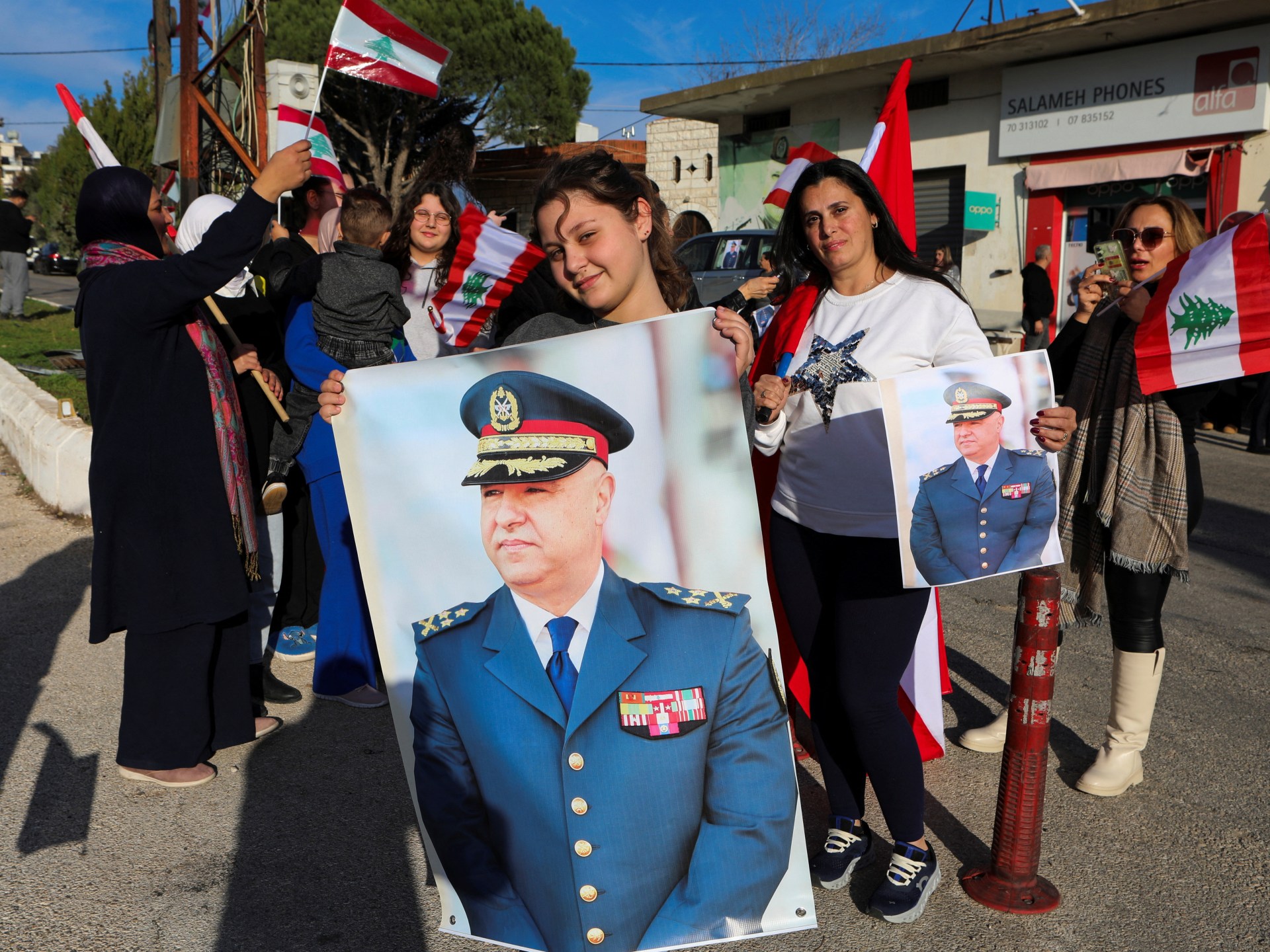Joseph Aoun, a commander of the Lebanoni Army, has been appointed as the country’s new leader.
The 61-year-old becomes Lebanon’s 14th president, having filled a presidential vacuum of more than two years left by his predecessor, Michel Aoun – who is not related to the new president.
The parliament of Lebanon had met on 12 previous occasions to vote for a president before acing Joseph Aoun’s appointment, which resolves a major scuffle.
Aoun received a wide range of political support in the parliament, and in the second round of voting, he received 99 votes from the 128-seat parliament.
But who is Joseph Aoun? And why did it take the Lebanese parliament so long before it decided that he was the right person to lead the nation?
Military experience
Born in 1964 in Sin el-Fil, a northern suburb of Beirut, Aoun came to prominence during his time as Lebanon’s army commander, a position he ascended to in 2017, and which, like the president of the republic, has to be occupied by a member of Aoun’s sect, Maronite Christianity.
Aoun’s official Lebanese army biography lists his enrollment at the military academy in 1983, during the Lebanese civil war.
He climbed steadily up the ranks, taking courses both abroad and in Lebanon, including the US counterterrorism program. He also was awarded Lebanon’s Medal of War three times, along with several other medals and honours.
Aoun launched an operation in August 2017 to target ISIL (ISIS) fighters who had spent years in the mountainous terrain between Syria and Lebanon, particularly in the northern Bekaa Valley, near the Christian villages Ras Baalbek and Qaa.
The operation’s success boosted Aoun’s standing. Aoun also had the opportunity to establish close ties with a number of regional and international actors, including the United States, Saudi Arabia, and Qatar, making this a network that has proven particularly effective in gaining support for Aoun’s presidency.
Economic and political crises
Aoun’s tenure as Lebanese army commander came at the same time as a country’s most difficult time.
Millions of Lebanese are struggling because of a decade-long economic crisis, where many soldiers have been forced to work as second jobs to make ends meet.
The wider governance crisis in Lebanon has been portrayed as emblematic of the economic crisis. A sectarian political system has entrenched an ageing political gerontocracy, associated with corruption and political mismanagement.
More than 220 people were killed in the Beirut explosion in August 2020, which reinforced the impression that Lebanon’s rulers had completely failed the Lebanese people.
The Lebanese parliament was unable to agree on a successor when President Michel Aoun resigned from office in October 2022 despite holding regular meetings to vote. This left the Lebanese state effectively paralysed, just as action was needed to confront the country’s economic challenges.
The Lebanese army, which Aoun led, was also widely perceived as being weaker than the Shia organization Hezbollah, another factor that reduced the Lebanese state’s effectiveness.
Israel’s conflict with Gaza quickly dragged on in Lebanon as Hezbollah launched an offensive against Israel on October 8, 2023, which eventually led to two months of bloody Israeli bombings and a land invasion that claimed more than 4, 000 lives, and reached a ceasefire agreement on November 27 last year.
Opportunity
Despite the suffering and destruction, the resolution of the war did lead to a decision to finally elect a president as domestic and international pressure increased to find a resolution and send a message that Lebanon would begin to rebuild.
Aoun, who only began to be taken seriously as a presidential candidate in 2023, was the man to take advantage.
Despite the deaths of more than 40 Lebanese soldiers during that time, he has also been regarded as an important player in ensuring Lebanon’s commitment to the ceasefire, which requires that Hezbollah withdraw from south of the Litani River and be replaced by the Lebanese army, and ensuring that Israel will withdraw behind the UN-defined border between Lebanon and Israel.
Notably, Israel has welcomed Aoun’s appointment.
It is difficult to define Aoun politically outside of his domestic and external support, which is perhaps one of the factors contributing to his election as president.
Although he rarely gave interviews and little is known about his political views, he did criticize politicians for Lebanon’s financial crisis in 2021, claiming that soldiers were becoming starving.
Aoun had not stated a clear position on Hezbollah’s weapons arsenal, but in his inauguration speech, he did pledge “to affirm the state’s right to monopolise the carrying of weapons”. It is still unclear what he will do to enforce those laws, and it will be difficult to see Hezbollah acquiescing to any demand.
Additionally, the new president made a pledge to rebuild Beirut Dahiyeh and the southern areas targeted by Israel.
Aoun’s appointment marks the end of a bitter period of parliamentary division, which Aoun places emphasis on.
Source: Aljazeera

Leave a Reply